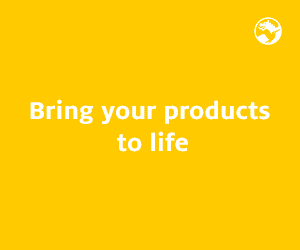The latest news, trends, analysis, interviews and podcasts from the global food and beverage industry
An new initiative is now available for farmers in the UK, aimed at reducing greenhouse gas emissions through a collaborative funding model.
The Soil Association Exchange has launched the Exchange Market, a £1 million insetting fund designed to reward farmers who implement strategies to cut their carbon footprint without engaging in the sale of carbon credits.
This programme pools financial contributions from various companies within shared supply chains, including prominent retailers such as Co-Op, Lidl and Tesco, alongside landowners like the Church Commissioners for England. Lloyds Bank has played a crucial role in facilitating this collaboration, helping to bring together key stakeholders committed to sustainability.
The Exchange Market distinguishes itself from traditional carbon offsetting by focusing on 'carbon insetting'. Farmers will receive funding based on customised action plans aimed at reducing emissions.
These plans, developed in consultation with Soil Association Exchange advisors, could involve practices such as reducing fertiliser usage, enhancing fuel efficiency or investing in renewable energy sources like solar power.
Joseph Gridley, chief executive of Soil Association Exchange said: “Exchange Market is about creating real, measurable change within farming systems while empowering farmers to make decisions that work for them. This carbon insetting programme demonstrates that delivering true environmental outcomes can go hand in hand with financial resilience when farmers and businesses collaborate to build a sustainable future for food and farming."
He continued: “It represents a major step forward in aligning farming activities with climate goals and demonstrates the power of what can happen when businesses and farmers work together. Collaboration like this enables greater scalability, affordability and ultimately more impact in reducing agricultural emissions and advancing positive environmental outcomes.”
Participating farmers can earn £60 per tonne of CO2 equivalent reduced annually, with half of the payment provided upfront to support their transition. Notably, the programme also recognises farmers who have already achieved lower emissions, offering maintenance payments to sustain their progress.
James Hay of Barton Place Farms, a member of the farmer steering group, highlighted the initiative's flexibility, stating it provides essential financial support for farmers seeking to explore new methods of emission reduction amidst changing subsidy landscapes in the UK.
The Exchange Market’s first funding round has successfully secured £1 million, aimed at addressing Scope Three emissions – those generated indirectly through supply chains. This collaborative effort aligns farmers with businesses that are increasingly focused on meeting ambitious sustainability targets, creating a mutually beneficial ecosystem.
Lee Reeves, UK Head of Agriculture at Lloyds, noted the importance of supporting the agricultural sector in its transition to sustainability. He described the Exchange Market as a critical step in fostering an environment where farmers are rewarded for their efforts in reducing emissions.
Farmers interested in participating must complete a baseline assessment and submit a verified emissions reduction plan, ensuring accountability throughout the process. This structured approach not only incentivises farmers but also provides a framework for businesses to share the costs associated with reducing emissions in their supply chains.
The Exchange Market opens to farmers on January 7 2025.
#greenhousegases #funding #SoilAssociation #farming #agriculture #sustainability







.jpg)